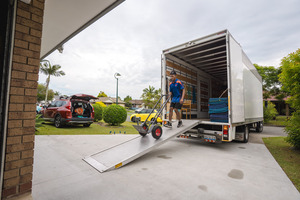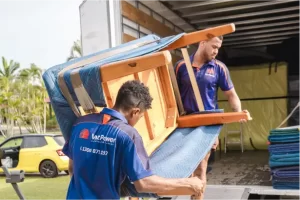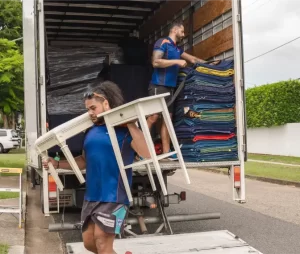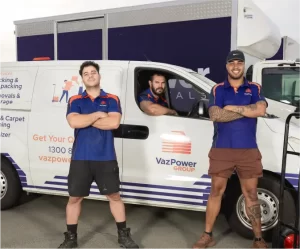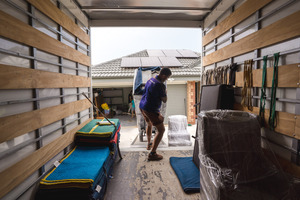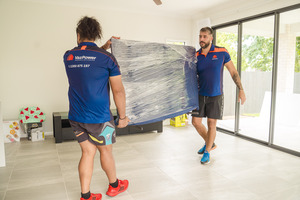
Getting your full bond refund back after moving out doesn’t have to be a hassle. It’s all about understanding what landlords expect and ensuring you leave the place in better shape (or at least equal to) how you first found it. Let’s walk through crucial tips to help you get every cent back in your pocket.
1. Start With a Checklist:
Make a list of everything that needs cleaning or fixing in your rental in accordance with the residential tenancies act. This is usually easier if you have the initial condition report, which you filled out when you first moved in. It’ll be your roadmap to returning the place to its original state. Look at things like wall scuffs, carpet stains, or minor damages. And don’t forget those sneaky areas like light fittings and window tracks!
2. Fix Any Minor Damages:
Nail holes from hanging up pictures? Scratches on walls? Minor stuff like that can be fixed with simple DIY supplies—a little spackle and a quick paint touch-up can do wonders. If you leave it, you might get charged for general wear issues, more than it costs to fix. And let’s be honest, nobody wants that.
3. Deep Cleans
Deep cleaning is all about getting in those nooks and crannies. Pay special attention to often-overlooked areas—kitchen grease buildup, bathroom grout, ceiling fans, and window sills. If cleaning feels too much or you’re short on time, consider hiring professional cleaners. Ensure they’re experienced in end-of-lease cleans and the release of the bond, so they know what landlords or agents will inspect.
4. Carpets and Curtains
If the carpets were clean when you moved in, they’ll need to be clean when you move out of your rental property. Check your lease; sometimes, steam-cleaning is required and can make a lot of difference. Curtains can usually get cleaned from dust and stains by using a vacuum or washing machine—a little spot cleaning can save a lot of drama.
5. Kitchen and Bathroom TLC
These two spots are make-or-break when it comes to getting your full bond refund back. Kitchens must be spotless, including behind the oven and around the stovetop. Bathrooms? The same goes. Remove any mould (even small bits) and get those fixtures sparkling. A simple mix of vinegar and baking soda can work wonders on sinks and tiles.
6. Garden and Outdoor Areas
If you have outdoor areas, make sure they’re tidy. Mow the lawn, pull out weeds, and sweep any pathways or decks. If the outdoors looked maintained when you first got there, return it in the same state, similar to the process you might use in the bond section of the platform.
7. Document Your Hard Work
Once you’ve done all the cleaning and repairs, take copies of photos! It’s an excellent way to have proof of the property’s condition when you hand back the keys. That way, if any disputes come up, you’ve got solid evidence to back up your case.
8. Communicate With Your Property Manager
Sometimes, the best way to avoid bond headaches is to keep the lines of communication open. If something broke during your tenancy that’s outside of wear and tear, let them know early, along with your updated bank account details. It might be easier to sort out along the way rather than at the end.
9. Pay attention to the walls.
Objects, scuffs, and minor damage to the walls are significant reasons tenants lose part of their bond. Before moving out, check every room for any blemishes, remembering that normal wear and tear is considered acceptable. Magic erasers are great for removing minor scuffs, and if there are small holes in picture hooks, patch them up neatly. If the paint is chipped, you might need to do a small touch-up, but make sure the paint matches—nothing looks worse than mismatched wall patches.
10. Appliances Matter:
Don’t forget about the appliances that come with your rental. If you have an oven, make sure it’s thoroughly cleaned—this is a common area landlords check. The same goes for the fridge if it was provided. Clean all the shelves and drawers, and leave them smelling fresh. Range hoods, microwaves, and even the washing machine should all get a once-over. Keeping these clean shows you’ve taken good care of the property, which can also positively influence your bond payment.
11. Don’t Overlook Windows and Doors
Clean windows can make a big difference in your RentBetter account management. Ensure the inside and outside (where accessible) are cleaned properly. Tracks and sills often collect dust and debris, so give them a good vacuum and wipe down. Doors should also be checked—clean any marks and make sure door handles are in good condition. If there are squeaky hinges, a bit of lubricant can go a long way.
12. Light Fixtures and Smoke Alarms
Dusting and cleaning light fixtures can improve the overall impression of cleanliness. To ensure a smooth transition, it’s also important to prepare the necessary bond refund form with your landlord. Replace any blown bulbs to avoid your landlord deducting money for something so simple. Also, check that smoke alarms are working correctly. If they need new batteries, replace them. It’s a small effort that can make a big difference.
13. Blinds and Air Vents
Blinds can be dust magnets, so give them a good clean. Depending on the type of blinds, you may need to wipe each slat individually or use a duster. Air vents can also gather dust and may need a quick vacuum or wipe down. Keeping these areas clean can really show that you’ve done a thorough job, which is vital when ensuring you get your bond money back.
14. Hire Professional Help When Needed
If you’re unsure about your cleaning skills or simply don’t have the time, it could be worth hiring professionals. Many cleaning services specialize in end-of-lease cleaning at the end of your tenancy and know exactly what landlords look for during inspections. Make sure you keep the receipt, as some landlords require proof of professional cleaning, especially for carpets.

15. Be Present at the Final Inspection
If possible, try to be present when your landlord or property manager completes the final inspection and the bond lodgement form. This gives you a chance to address any last-minute concerns they might have. If something small is pointed out, you might be able to fix it on the spot rather than risk a deduction from your bond.
Dispute Resolution and Tribunal Process
A rental bond serves as a security deposit paid by tenants to landlords, safeguarding against potential damages or unpaid rent. Typically, it reflects a specific amount, determined by local regulations or the rental agreement, ensuring that both parties are protected throughout the duration of the tenancy. Understanding this financial commitment is crucial as it affects the bond refund process, especially if a notice of claim is filed. At the end of the tenancy, a comprehensive examination of the property condition report will determine the eligibility for a full bond refund.
Special Circumstances for Bond Refunds
Unforeseen situations can affect the bond refund process significantly. For instance, cases involving domestic violence may allow for expedited bond refunds, which assist victims in securing safe housing. Additionally, if tenants face urgent relocations due to job transfers or family emergencies, being aware of the specific guidelines within the residential tenancies act, including RTA web services, is crucial. Providing the necessary documentation, such as a notice of claim, can facilitate the release of the bond more swiftly. Each circumstance can impact the overall bond refund amount, promoting fair outcomes.
Leaving Due to Domestic Violence
A rental bond, or security deposit, serves as a safeguard for landlords against potential damages or unpaid rent during a tenancy. Typically, this amount is held by an authority or property manager until the lease concludes. The exact terms regarding the bond amount can vary, often influenced by local residential tenancies laws and the condition of the property at the end of your tenancy, including any issues related to unpaid rent. A thorough understanding of rental bonds is essential to ensure the return of your full bond after exiting your rental property.
Changes to Bond When Tenants Move
A rental bond, often referred to as a security deposit, acts as protection for landlords against potential damages or unpaid rent at the end of a tenancy. Typically, this bond is lodged with a rental authority and is expected to be returned to tenants within a set timeframe, usually allowing up to 3 business days, provided the property is in good condition. Each state has established maximum bond amounts and regulations that govern how these funds are managed, ensuring that tenants are treated fairly and have clear guidelines regarding the bond refund process.
Final Thoughts
In conclusion, securing your full bond back after moving out requires careful planning and attention to detail, especially regarding the security deposit. By following the outlined steps, such as thoroughly cleaning the property, addressing any repairs, and communicating effectively with your landlord, you can ensure a smoother transition. Remember, being proactive and organized not only increases your chances of getting your bond refunded but also leaves a positive impression, which can be beneficial for future rental references. Taking these measures will ultimately help you recover your hard-earned money and make your moving experience more rewarding.
Frequently Asked Questions
What Is a Rental Bond?
A rental bond serves as a security deposit that tenants pay to landlords at the start of their tenancy. This amount is held to cover any unpaid rent, damages beyond normal wear and tear, or any unpaid bills at the end of the lease agreement. The bond amount and rules are dictated by the residential tenancies act, which ensures fairness for both parties. Understanding these guidelines and the intentional actions associated with having a clear condition report can smooth out the bond refund process, making it easier to secure your full bond back.
When do you get your bond back?
You typically receive your bond back after the property has been inspected and deemed in good condition. This process usually occurs within 10 to 30 days after moving out, depending on local regulations and the landlord’s policies. Ensure all cleaning and repairs are completed to maximize your chances.
Bond Refund Process
Navigating the bond refund process involves several crucial steps to ensure a smooth transition after the end of your tenancy. Begin by carefully completing the bond refund form, which requires accurate bank account details and may need to be accompanied by an exit condition report. It’s essential to submit the refund request promptly, typically within a specified fast track timeframe. Communicating with your property manager and resolving any potential disputes, such as unpaid rent or damages, will help facilitate the release of your bond money in full.
What Happens If There’s a Dispute?
A rental bond serves as financial security for landlords against potential damages or unpaid rent during a tenant’s lease. Typically equivalent to four weeks’ rent, it safeguards the property owner’s interests throughout the tenancy. At the end of a tenancy, upon successful adherence to the tenancy agreement and fulfilling the conditions, tenants can expect their bond money back, including any relevant contact details for inquiries. Understanding the residential tenancies act is crucial, as it outlines your rights regarding the bond refund process, ensuring a smooth transition into your next living arrangement.












